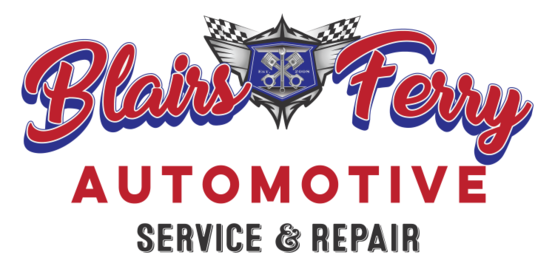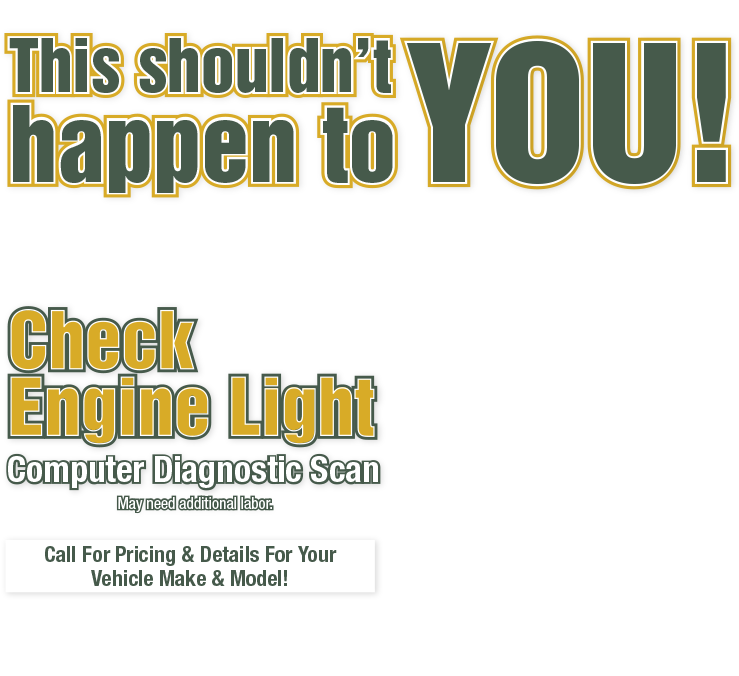Using Proper Fluids in Your vehicle
March 29, 2020
Today, Blair's Ferry Automotive is writing about the proper fluids for your vehicle. It's become more complicated with changes in automotive design and manufacturing. It's not that people in Marion are confused as much as they don't realize how much things have changed in recent years.
If you have questions about the fluids in your vehicle, please don't hesitate to stop by Blair's Ferry Automotive. You can find us on 1565 Blairs Ferry Rd. in Marion, Iowa 52302.
Just give us a call at 319-447-6310.
Let's take engine oil. Twenty or 30 years ago, there were just a handful of different weights of oil. The weight of an oil is a scientific measure of its properties, particularly its viscosity or thickness.
It was common in those days to use a lighter weight oil in the winter when it's cold outside. That way the oil would be able to splash around inside the engine and protect the parts before it was fully warmed up. And a heavier weight oil would be used in the summer. The thicker oil wouldn't thin out too much in the summer heat and vaporize in the engine.
Modern valve trains have become very complicated with more moving parts and small passages than ever before. The valve train is in the top of the engine, so when the vehicle has been turned off for a while, the oil tends to run down to lower areas. That means the valve train parts are vulnerable at start-up, before the oil starts circulating.
So new weights of oil have been introduced to meet the engineering specifications of these newer engines.
Manufacturers are recommending specific weights of oil. The recommendation is often printed on the oil fill cap. It's certainly in the owner's manual. Of course, Blair's Ferry Automotive in Marion can look it up for you.
It's more important than ever to have the correct weight of oil. The wrong weight could actually harm the engine.
Other fluids are also becoming more sophisticated. In the last few years new types of transmission, power brake fluid and coolant have all been introduced for some of the same reasons as for engine oil.
In addition, vehicle manufacturers are now using a wider variety of materials in these systems. Looking at the cooling system as an example, it used to be that the parts were all made out of steel or iron and the hoses were rubber. Now, some parts are plastic, aluminum or other materials.
So the anti-corrosion additives contained in the coolant, or anti-freeze, need to be different in order to protect the different materials used to make the cooling system. If you use the wrong coolant that wasn't formulated to protect your plastic cooling system parts, they could become corroded and fail. And if you're using the wrong coolant, your cooling system won't be covered under warranty. So it's important to use the right coolant and to not mix different types.
Your owner's manual or service advisor at Blair's Ferry Automotive can make sure you're using the right type. You may have heard of universal coolant. Universal, or global, coolant can be added to other types without harmful reactions. That's OK for an emergency top off, but following your manufacturer's recommendation for your vehicle or other auto type is always a safe bet.
In the area of brake fluid, there are a couple of new formulations. It's important to remember that the new ones aren't better than the old ones. They're just different formulations for different vehicles. So if your vehicle calls for DOT 3, using DOT 4 or DOT 5 is not an upgrade. Use the recommended formula.
There are fluid formulations for vehicles with higher mileage. These are special engine oil, transmission fluid and so on that contain additives to condition and restore seals and gaskets in older engines.
They're fine to use as long as they're a variant of the proper fluid. In other words you can use a high mileage engine oil as long as it's also the correct weight recommended by the manufacturer. Same goes for transmission fluid; as long as it's the right type for your transmission.
Blair's Ferry Automotive
1565 Blairs Ferry Rd.
Marion, Iowa 52302
319-447-6310
http://www.blairsferryautomotive.com
Need Service?
More articles from Blairs Ferry Automotive

Positive and Negative (Battery Care)
May 19, 2024
You notice when your smartphone's battery starts to go weak on you. It runs out of juice faster than it did when it was new. Bet you pay attention to that pretty closely. Unfortunately, many of us don't pay the same attention to the battery in our vehicles. If your battery got you through the c... More

What is a TPS? (Throttle Position Sensor)
May 12, 2024
You know you have an accelerator pedal; step on it and your vehicle is supposed to go. But did you know there is a part in your vehicle that keeps track of where the throttle is? It's called the Throttle Position Sensor, or TPS. The TPS is a sensor that helps your vehicle figure out the right mi... More

Problems with Suspension Solved at Blair's Ferry Automotive in Marion
May 5, 2024
A vehicle's suspension system is tough. It can last for years and after lots of driving for Marion drivers. But it can be damaged quickly by hitting a pothole, curb or rock, and it can wear more quickly if you frequently drive off-road or on bumpy roads. A workhorse vehicle one that hauls heavy ... More









